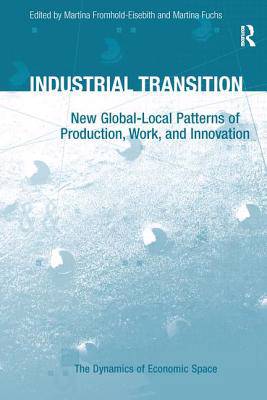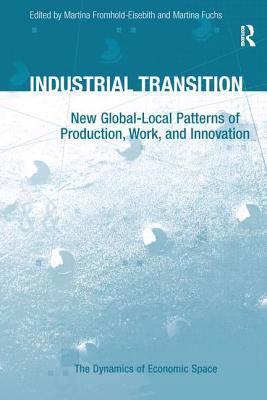
- Afhalen na 1 uur in een winkel met voorraad
- Gratis thuislevering in België vanaf € 30
- Ruim aanbod met 7 miljoen producten
- Afhalen na 1 uur in een winkel met voorraad
- Gratis thuislevering in België vanaf € 30
- Ruim aanbod met 7 miljoen producten
Zoeken
Industrial Transition
New Global-Local Patterns of Production, Work, and Innovation
Martina Fuchs
Paperback | Engels
€ 111,45
+ 222 punten
Uitvoering
Omschrijving
Contributions by an international set of renowned economic geographers highlight the major features of 'industrial transition' and address various questions that matter for the future of our global economy: How are regions and localities affected by the shift of product mandates? In which ways does change differ between industrial sectors and economic regions? How can regions and localities adequately prepare for or react to foreseeable changes; and how can regional resilience and response capacities be built and enhanced?
Specificaties
Betrokkenen
- Auteur(s):
- Uitgeverij:
Inhoud
- Aantal bladzijden:
- 264
- Taal:
- Engels
Eigenschappen
- Productcode (EAN):
- 9781138255401
- Verschijningsdatum:
- 17/10/2016
- Uitvoering:
- Paperback
- Formaat:
- Trade paperback (VS)
- Afmetingen:
- 156 mm x 234 mm
- Gewicht:
- 371 g

Alleen bij Standaard Boekhandel
+ 222 punten op je klantenkaart van Standaard Boekhandel
Beoordelingen
We publiceren alleen reviews die voldoen aan de voorwaarden voor reviews. Bekijk onze voorwaarden voor reviews.







